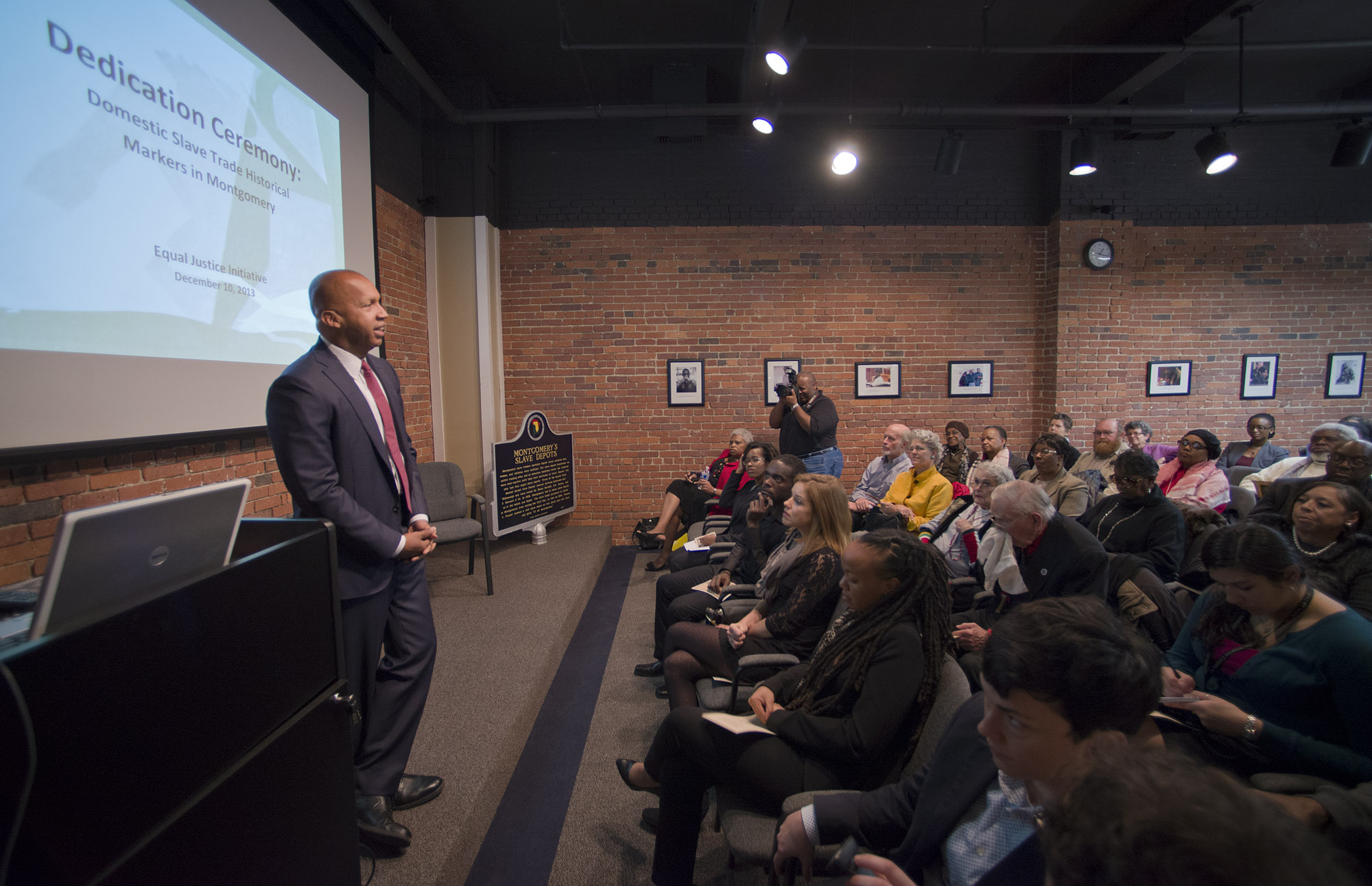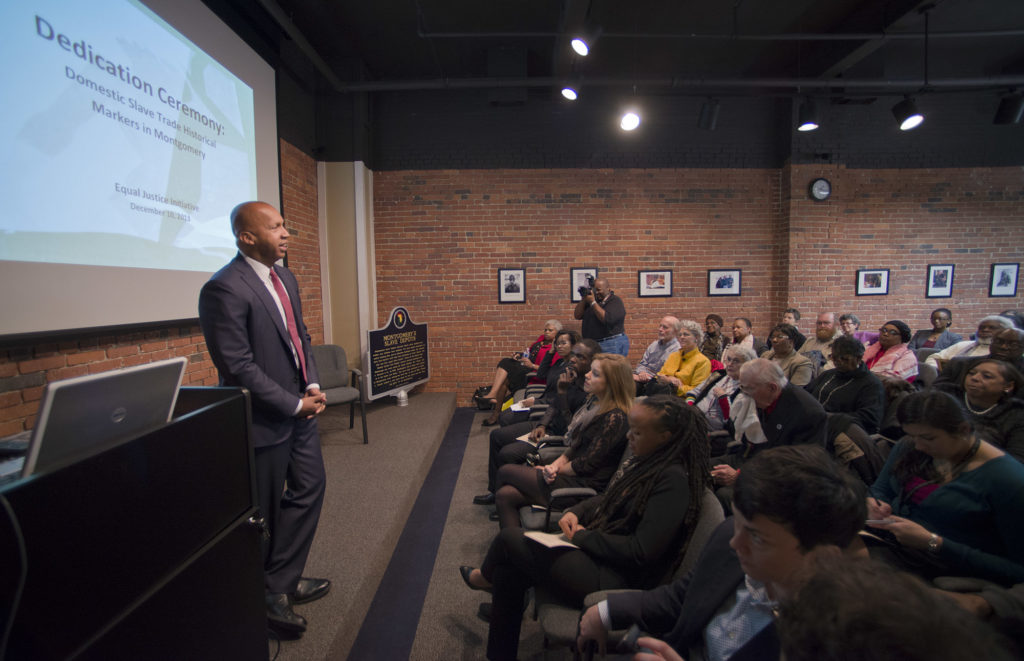
By Sean Flynt
Samford University

Equal Justice Initiative (EJI) founder Bryan Stevenson electrified and inspired an audience of almost 2,000 in Samford University’s Wright Center Concert Hall.
Stevenson, who has dedicated his law career to helping the poor, the incarcerated, and the condemned, presented the 2016 J. Roderick Davis Lecture at the invitation of the university’s Howard College of Arts and Sciences and Frances Marlin Mann Center for Ethics and Leadership on Oct. 4.
Mann Center Director and former Alabama Supreme Court Chief Justice Drayton Nabers presented Stevenson the center’s Mann Medal in Ethics and Leadership, which honors leaders or organizations whose efforts have made significant contributions to a more just and ethical society.
“There is no one in the United States who has pursued this mission more honorably, more effectively, more powerfully than Bryan Stevenson,” Nabers said.
During his lecture, Stevenson focused on prison and sentencing reform, which remains a perpetual concern in Alabama and across the globe. He noted that the U.S. prison population has risen from 300,000 in 1972 to 2.3 million today, due in part to treating drug addiction as a crime rather than a disease.
He pointed out that the rate of incarceration of women has increased 646 percent in the last 20 years. Seventy percent of those women are single parents, whose children then become more likely to be imprisoned as a result of their broken families.
How can the crisis be addressed?
“The first thing you’ve got to do is get proximate to the people and places where injustice can be seen,” Stevenson said. “When we get proximate, we can do things for other people that we can’t do from a distance. We can serve people, we can see people, we can hear people, we can understand people in ways we cannot from a distance.”
Stevenson shared this story: While spending a month providing legal services to death-row inmates in Georgia, he delivered the news that a man would not be executed in the next year. The inmate, bound in chains, welcomed the news as an opportunity to see his wife and children without burdening them with an exact date of his death.
“I couldn’t believe how, even in my ignorance, being proximate could have an impact on the quality of someone’s life,” Stevenson said.
Well-meaning policymakers are failing to address the problem because they often develop their policies apart from the communities they aim to serve, he said.
Stevenson’s encounters with the “broken people” of death row have had an impact on him, especially in the face of systemic racism, exculpatory evidence ignored, children imprisoned for life, and a system often “more concerned with finality than fairness,” he said.
The lawyer described a case in which a 14-year-old with no prior criminal record shot and killed the sleeping man who had just beaten the boy’s mother into unconsciousness. Because the man was a deputy sheriff, the prosecutor insisted the boy be tried as an adult. When Stevenson first met the boy, in an adult jail, he found a terrified child who had been assaulted so many times in the few days since his arrest that he had lost count. As Stevenson left that young client, he wondered who was responsible for the terrible situation.
“The answer is, we are,” he said.
Stevenson challenged his audience to join him in accepting that responsibility, remaining hopeful, addressing the past with honesty and openness, and reshaping the narratives of racism at the root of injustice.




